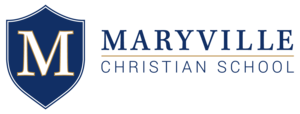Bible
The Bible curriculum introduces students to the marvelous world that God created. Bible stories capture the students’ attention and teach lessons that demonstrate God’s love and divine purpose for each of them. It is our goal for each student to develop a personal relationship with Christ, a love for His word, and a desire to share the Gospel with others.
Exploratory Courses
Art
Physical Education
Music
STEM
Computers
Field Trips
Eckert’s Apple Farm
The Planetarium at the Science Center
Kindergarten Life
Kindergarten Welcome
Chapel
Young Authors
Thanksgiving Fellowship
Reading Buddies
Kindergarten Graduation
Science Fair
Library
Christmas Musical
Language Arts (Reading, Writing, Spelling)
Language Arts focuses on developing specific skills for each individual student through differentiated instruction in the areas of reading, writing, and spelling. In each of these disciplines a strong emphasis is placed on phonemic awareness, decoding, reading comprehension, sight word recognition, and word families. Reading strategies are taught through small, guided reading groups and classroom shared reading activities. Students will learn the basic components of sentence structure and produce several writing pieces (creative, letters, etc).
Mathematics
The purpose of our math curriculum is to develop critical thinkers through the formation of skills, strategies, and number theory knowledge. This is achieved through individual, small group, and whole class instruction and is reinforced in math centers through the use of manipulatives, technology, and educational games. Units of study include addition, subtraction, problem solving, geometric shapes, estimation, time, and money.
Science
The goal of the science curriculum is to spark students’ interest in God’s creation. Students apply observation skills by using their senses to make predictions, judgments, and evaluate outcomes. Topics of study include life cycles, the water cycle, plants, and animals.
Social Studies
Social studies topics are taught through thematic units. The major units of focus include influential Americans, community helpers, holidays, and traditions.
STEM (Science, Technology, Engineering, and Math)
STEM focuses on the 4 core sciences of physical science (push and pull concepts), life science (plants and animals), earth and space science (effects of the environment on plants and animals), and engineering technology (projects, testing, and inquiry). STEM projects foster inquiry-based learning and hands-on participation.

